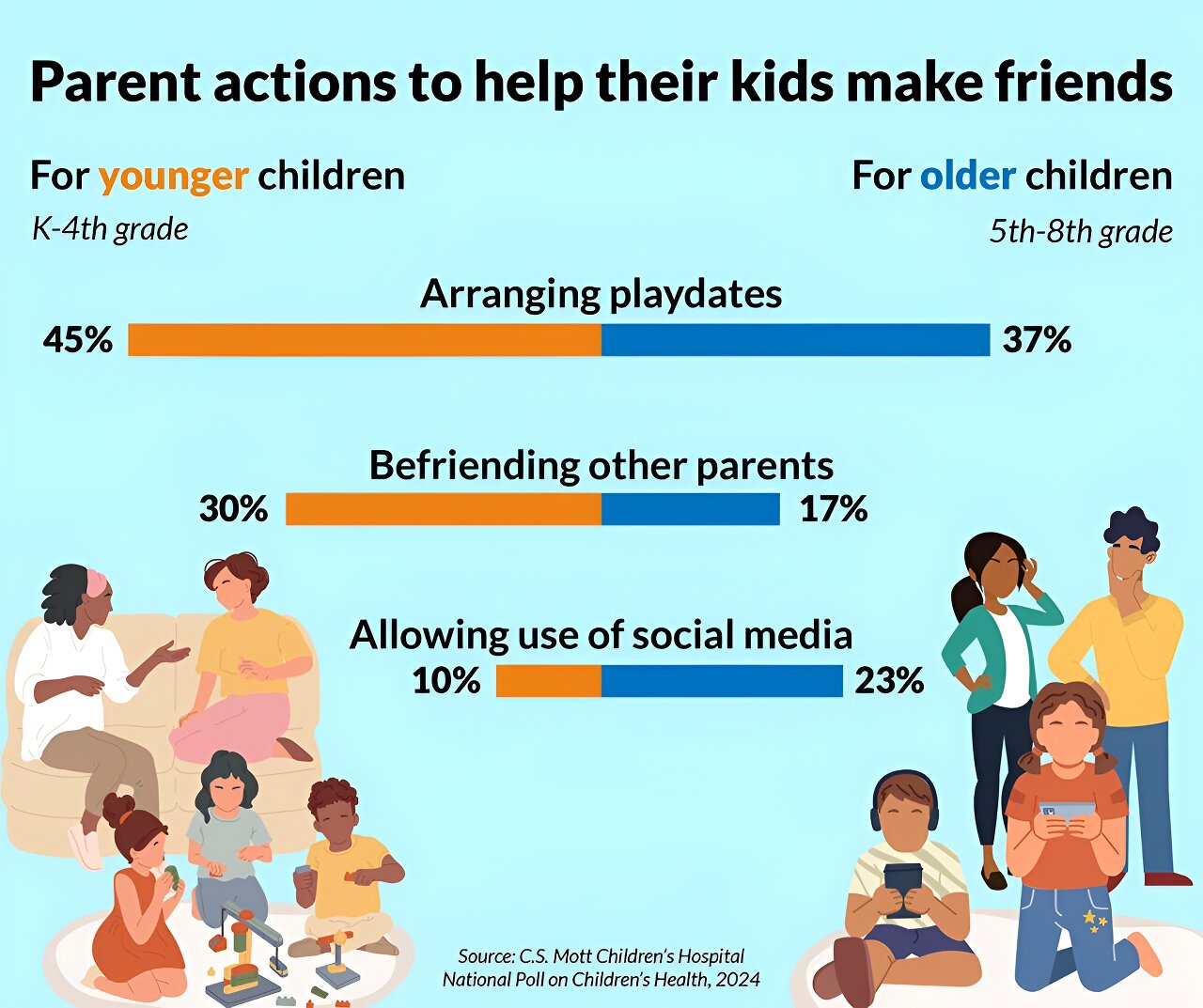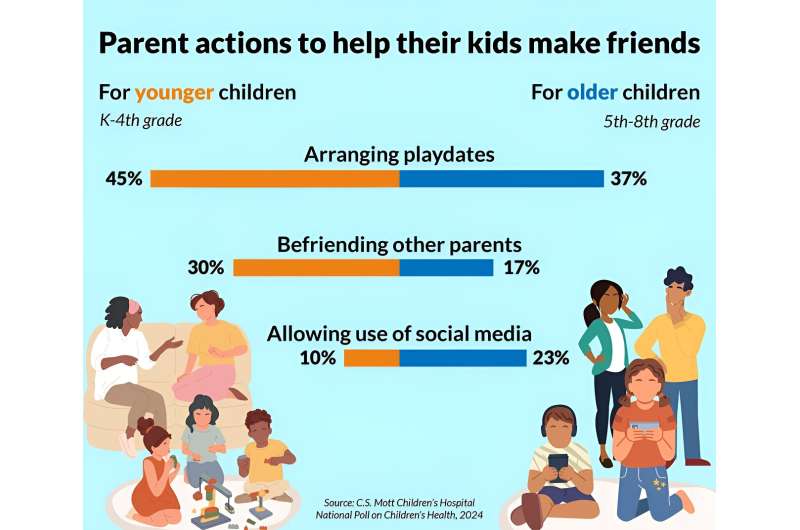

Developing friendships is often seen as a natural part of childhood but it may be easier for some kids than others.
And many parents worry about their children’s friendships, according to the University of Michigan Health C.S. Mott Children’s Hospital National Poll on Children’s Health, with one in five saying their child ages six to 12 has no friends or not enough friends.
Some 90% of parents believe their child would like to make new friends.
“Friendships can play a significant role in children’s overall health and development, emotional well-being, self-esteem and social skills,” said Mott Poll co-director Sarah Clark, M.P.H.
“But some parents say their children face barriers in making friends, such as personality, social anxiety, medical conditions or just not having as many opportunities.”
Over half of parents report at least one factor that makes it difficult for their child to make new friends, with about one in five saying that shyness or being socially awkward got in the way of their child’s efforts to make new friends.
Another 15% of parents say friendship challenges stemmed from kids being mean, while less than 10% said a child’s disability or medical condition made friendships more challenging.
Parents of older children were more likely than parents of younger children to say that difficulties making new friends are related to other kids already having friend groups or having too few places to get together.
The nationally representative report is based on responses from 1,031 parents of children 6–12 years old surveyed in August 2024.
Helping children navigate friendships
Three in four parents have taken steps to help their child make new friends.
The most common strategies include arranging play dates or outings, enrolling their child in activities to meet kids with similar interests or giving their child advice on how to make friends. About a fourth of parents try to befriend other parents who have kids the same age.
“Supporting children in making friends is a balance of guidance, encouragement, and giving them space to navigate social situations independently,” Clark said.
“Parents’ involvement may vary based on a child’s age, personality, and social needs.”
Children who struggle making new friends because of shyness, medical conditions or social anxiety, for example, may need to be gently eased into friend-making. Parents can help by choosing a small-group activity the child enjoys, Clark suggests, and allow space for the child to become comfortable interacting with peers.
“For some children, making new friends can be stressful,” Clark said. “Remember that children are still developing and practicing their social skills while making and maintaining friendships.
“Parents should expect and allow children to make mistakes, intervening only in matters of safety. Later, in a private moment with the child, parents should be ready to listen and offer advice.”
Parents of older children are also more likely to allow children to use social media to connect with friends—including one in four parents of middle school-aged children—and buy items to help them “fit in.”
Clark cautions parents to be mindful of how their kids are using social media, which has been shown to increase the risk of developing mental health concerns such as anxiety and depression because of opportunities for negative peer influences.
“Parents who choose to allow social media should help their child learn to use it responsibly,” she said.
Parents want friends’ families to be like them
Over half of parents feel it’s very important that they know the parents of their child’s friends, while more than a quarter are very concerned about their child’s friends encouraging their child to do things parents don’t approve of.
But one of the most surprising findings from the poll, Clark says, was that two in three parents said it was important that their child’s friends come from families that were like theirs. Most commonly, this involved similar parenting styles.
More than a third of parents also indicated a preference for their child’s friends to come from families with a certain political or religious affiliation. Fewer said it was important that friends’ families had similar levels of education or income.
Clark cautions that keeping children’s friendships exclusive to certain circles may prevent them from developing broader perspectives, open-mindedness and better social skills.
“School is often viewed as a place where children will encounter and form connections with peers with different backgrounds, ideas, customs, and ways of thinking,” Clark said.
“Limiting a child’s friends to only those from similar backgrounds may hamper their ability and comfort in navigating diverse networks in the future.”
More information:
Poll: mottpoll.org/reports/facilitat … ndships-parents-role
Provided by
University of Michigan
Citation:
1 in 5 parents worry their elementary and middle school aged kids don’t have friends, poll suggests (2024, September 16)
retrieved 16 September 2024
from https://phys.org/news/2024-09-parents-elementary-middle-school-aged.html
This document is subject to copyright. Apart from any fair dealing for the purpose of private study or research, no
part may be reproduced without the written permission. The content is provided for information purposes only.